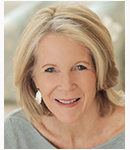Today’s guest host is Debbie Georgatos. In the first hour, she chats with Dr. Everett Piper, president of Oklahoma Wesleyan University. They discuss education, politics, freedom, justice, common sense, human dignity, sexual responsibility, and moral objectivity.
In the second hour, Katherine Kersten, senior policy fellow at Center of the American Experiment joins Debbie by phone. She discusses left-wing influence on public schools in Minnesota. Join the conversation by giving us a call at 800-351-1212.

Dr. Piper speaks boldly and unapologetically on issues such as natural law, unalienable rights, self-evident truths, and the unavoidable consequences of ideas on personal, political, community, and corporate well-being.
His commentary rhetorically confronts the reader and listener to consider issues such as freedom, justice, common sense, human dignity, sexual responsibility, and moral objectivity. Piper is specifically passionate in arguing that postmodern political correctness is really nothing more than an unvarnished ploy to consolidate power among society’s elites and to, thus, restrict the individual freedoms and rights of the general public. Opinion as the final measure of right and wrong always leads to the rise of the “rule of the gang” or “the tyranny of one.”
Dr. Piper writes for numerous publications including the Examiner Enterprise, Chuck Colson’s Breakpoint Magazine, and Crosswalk.com. He resides with his wife and two children in Bartlesville, Oklahoma.

Ms. Kersten has written on cultural and policy issues for a variety of publications, including the Wall Street Journal, the Weekly Standard, Christianity Today, Policy Review, American Enterprise, and First Things. For two years, she served as a regular commentator for National Public Radio’s “All Things Considered.” She has also appeared on numerous radio and television shows, both nationally and locally, and has been featured on FOX News and MSNBC, as well as NPR’s “Talk of the Nation;” the Canadian Broadcasting Company’s “As It Happens;” NBC’s “A Closer Look with Faith Daniels” and “Public Eye with Bryant Gumbel.” Ms. Kersten has been named a Friend of the Humanities by the Minnesota Humanities Commission, and a Distinguished Alumna of the Program of Liberal Studies of the University of Notre Dame. In 2003, she received the University of Notre Dame Alumni Association’s Family Exemplar Award. Married to attorney Mark Johnson, Ms. Kersten is the mother of four adult children.

The first commentary is the most revealing. It’s headlined “Why it’s crucial for today’s students to unlearn racism.” The author is Annie Mogush Mason, Program Director of Elementary Teacher Education at the University of Minnesota.
Though Mason asserts that “Kersten’s commentary rests on untenable ground throughout,” she makes no attempt to provide evidence for this claim. Instead, she offers her own view of American history, which she says justifies ideologically driven education of the kind the Edina schools practice.
"The content of this class and the way it is being taught is not satisfactory. And even if it is ... we feel that we haven't had the opportunity to interact with the text and information. We demand that you make and [hold space] to [study] the voices of students of color," one protester stated.

Concern over Title IX abuse is now officially, unequivocally bipartisan.
Yesterday, California governor Jerry Brown — arguably the nation’s most powerful leader of the #Resistance — vetoed a state bill that would have imposed constitutionally suspect Obama-era Title IX guidance on California public schools, mandating that they satisfy the lowest burden of proof in sexual-harassment and sexual-assault adjudications, defining sexual harassment far too broadly, and failing to adequately protect fundamental due-process rights.
Out of the 35 wealthiest countries analyzed by UNICEF, only one, Romania, had a child poverty rate above the 23 percent rate recorded in the U.S. The rate is based on the definition of relative poverty used by the Organization for Economic Co-operation and Development (OECD), which states a child is living in poverty if he or she is growing up in a household where disposable income, when adjusted for family size and compensation, is less than 50 percent of the median disposable income for the country in question.
By this standard, more than 15 percent -- about 30 million -- of the 200 million children across the 35 countries studied are seen to be living in relative poverty.
 Listen Online
Listen Online Watch Online
Watch Online Find a Station in Your Area
Find a Station in Your Area


 Watch Now
Watch Now Listen Now
Listen Now 





 Listen Now
Listen Now Watch Online
Watch Online
